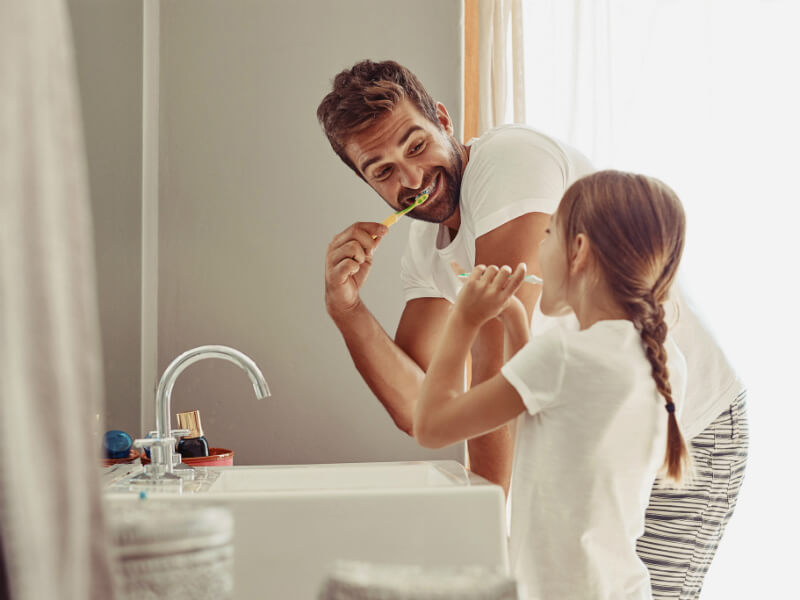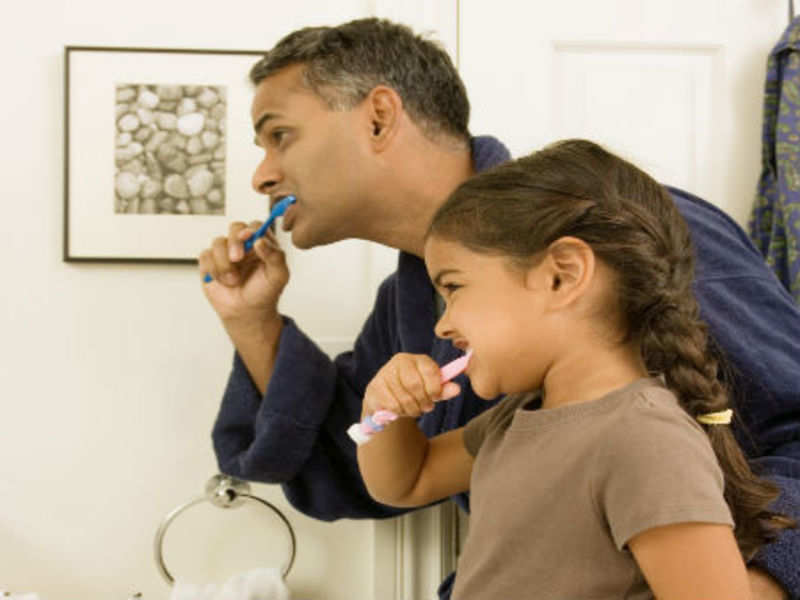
Hygiene
Bicarbonate is one of the safest, cheapest and most useful substances we can find in our homes. It is present in almost all houses but we don’t usually pay much attention to it in spite of the large number of uses it has.
Natron is baking soda that is found naturally and was already used in ancient Egypt for cleaning and in other civilizations to make bread, as it makes the dough of bread rise more easily. Its use to make bread popularized it in the mid-nineteenth century and led to its manufacture at an industrial level.
Since the popularization of bicarbonate, more uses have been found, among which the following stand out:
PERSONAL HYGIENE AND MEDICINAL USES
-Stomach Ulcers: One or two teaspoons of bicarbonate in a glass of water neutralizes stomach acids quickly.
Splinter Removal: By wetting or dipping the splinter area in a glass of water with a tablespoon of baking soda a couple of times a day, almost all splinters come out on their own in a couple of days.
-Sunburn: To relieve the pain of sunburn we can put ourselves in the tub by adding half a cup of baking soda to the water and leaving the skin to dry on its own. Another option is to apply cold water compresses with bicarbonate directly to the burn.
-Mouth cleaner: Mix 6 parts baking soda and 1 part sea salt unrefined and mix well. Apply a little of the mixture with the wet finger massaging the gums and rubbing the finger by the teeth. After 15 minutes the mouth should be rinsed. With this process we eliminate the bacteria of the mouth without using mouthwashes and we improve the oral health, especially of the gums. You can also use this mixture as a tooth whitener if you brush your teeth with it.
-Toothpaste: A good toothpaste substitute is a mixture of 2 parts baking soda to 1 part unrefined sea salt.
Alkalizing function: Bicarbonate is an alkaline substance and much of its usefulness in cleaning or medical purposes is based on this. A clear and well-known example is its use as an antacid for the stomach.
-Another example of its use as an alkalinizer: Some doctors believe that taking bicarbonate helps maintain the pH (acidity level) balance of the bloodstream, since our current diet is too acidic and the body’s acid-alkaline balance is essential for good health. The use of bicarbonate against colds and flu is based on this effect, since an alkaline medium makes the existence of some viruses difficult. The effectiveness of bicarbonate against influenza and colds was verified by the US Public Health Service during the Spanish influenza epidemic of 1918 and 1919. It was found that people who drank bicarbonate rarely became ill and that those who did or people who drank bicarbonate at the onset of the illness saw the violence of the outbreak reduced.

HOME CLEANING
-Pipe-cleaner: Conventional pipe cleaners are quite dangerous products due to their high toxic content. A good alternative is to throw baking soda down the drain and then throw vinegar. Let it act for 15 minutes (it will bubble due to the reaction of the acid of the vinegar with the bicarbonate) and rinse with hot water.
-To clean toys: Mix 4 tablespoons of baking soda in a quarter of a litre of water. Efficient and safe cleaning.
Softener for clothes: Originally softeners were used to compensate the action of lime water on clothes, today are basically used so that, in theory, clothes smell good. Conventional fabric softeners work by creating a layer of grease on the fabric fibre to compensate for the action of detergent and lime, which adheres to the fabric but does not really act against lime. If we use a detergent for natural, ecological and soft clothes and add a cup of bicarbonate to the washing machine, it will prevent the lime from adhering to the clothes, so it will not be necessary to use fabric softener, which is also highly toxic due to its components. Bicarbonate is not a substitute for laundry detergent and is only suitable for use as a fabric softener.
-Odor Absorber: Baking soda has the ability to neutralize odors of organic origin, such as animal odors, sweat or food. For example, it can be used to eliminate foot odor by spraying baking soda on shoes. We can also spray it on animal baskets, or any place where we want to eliminate organic odors. It is not effective in eliminating synthetic odours, such as tobacco, perfumes, etc.. It is important to note that bicarbonate is not effective in eliminating synthetic odors such as tobacco, perfumes, air fresheners, etc..
-Carpet care: Just pour baking soda generously on the carpet, let it act overnight and the next day vacuum. It is especially effective for removing animal smells or food stains. This process can also be used with car mats or carpets.
Cleaning the oven: Spray the inside of the oven with water and cover the surface with baking soda. Then spray the baking soda with water and let it work overnight. If it is very dirty, wash the next day with a cloth, soap and water. Then rinse with water.
-Eliminate cockroach pests: Place a mixture of sugar and bicarbonate in a ratio of 1:1 in the place where you want to eliminate the cockroaches.
Preserve food: A curious use of bicarbonate is to preserve food. All you have to do is place an envelope, box or jar of baking soda in the fridge to make the food last longer. This use is very popular in the U.S.
BAKING SODA PASTE
Baking soda paste is very easy to make. Just add a little water to the baking soda without dissolving it. This paste can be used in many ways. Some examples are:
-Deodorant: Rub the paste in the armpits and then rinse to eliminate body odour.
-Insect bites: To relieve the sting, simply apply the paste to the sting.
-Exfoliating: Gently rub the paste on the face or body.
-Polisher: Gently rub the surface with the paste to polish it and then rinse with lukewarm water. It can be used for any type of metal, methacrylate or tiles, for example.
One thing to keep in mind when buying bicarbonate is that not all bicarbonates are the same, as they may have a greater or lesser degree of purity, and therefore contain residues from the manufacturing process. The price of bicarbonate is very low, so it is always worth choosing the best quality to ensure that it is really efficient and safe, especially if we ingest it or use it for oral hygiene or as a deodorant.
